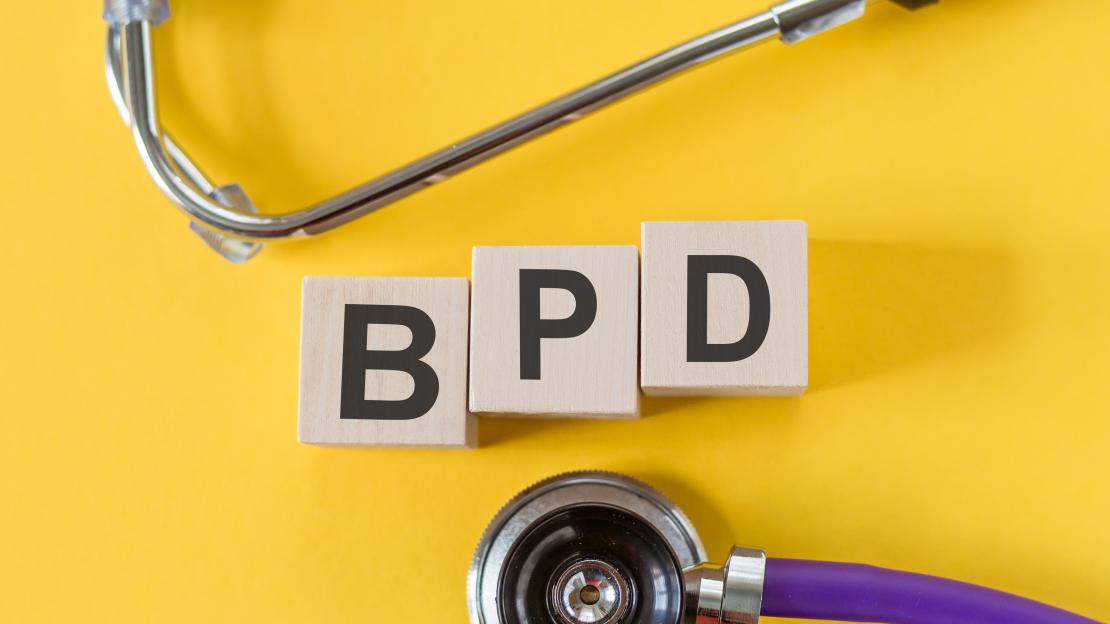WARNING: This story contains references to suicide and may be distressing for some readers.
An emerging brain stimulation technology could significantly reduce suicidal thoughts in patients with borderline personality disorder (BPD) — a mental illness with one of the highest rates of suicide.
Up to 10 per cent of people with BPD die by suicide. Treating the condition, which is characterized by unstable relationships, impulsivity and difficulty with emotion regulation, can be complex. But a recent study found magnetic seizure therapy helped rapidly decrease suicidal thoughts in patients with BPD and treatment-resistant depression.
“People with borderline personality disorder experience depression at a high rate, and antidepressant medications are not particularly effective for many patients,” says Anthony Ruocco, co-author of the study and director of clinical training in the department of psychological clinical science at U of T Scarborough. “There are several aspects about this treatment that potentially make it a very promising option for people with BPD.”
The study, published in the journal Nature Mental Health and conducted at the Centre for Addiction and Mental Health (CAMH), is the first of its kind. It examined 21 participants with BPD and treatment-resistant depression who were divided into two groups. Both groups completed up to five weeks of dialectical behaviour therapy, a talk therapy focused on coping skills, while one group also underwent brain stimulation up to three times per week.
The participants who completed both treatments had a rapid decline in their suicidal thinking — a result that remained four months later at a follow-up evaluation. The group that completed only dialectical behaviour therapy had a modest decrease in suicidal thoughts, and the researchers note it’s still an effective treatment, but the benefits to suicidal thinking might be boosted sooner in patients when combined with magnetic seizure therapy.
“Borderline personality disorder is highly stigmatized and tends to benefit less from new technological advances in treatment,” says Ruocco, who is named a Families for BPD Research investigator, a role with a grassroots organization that funds research into the diagnosis. “The results of this initial small study show promise.”

No side effects tied to brain stimulation treatment
A more commonly known form of brain stimulation is electroconvulsive therapy, which sends electrical pulses through the brain. While it’s one of the most effective interventions for treatment-resistant depression, it often results in temporary amnesia. That’s not an ideal side effect for those with BPD, who are more likely to struggle with memory, attention and other cognitive abilities needed to get the most out of therapy.
Meanwhile, magnetic seizure therapy uses magnetic fields that are five to 10 times more focused than jolts used in electroconvulsive therapy. Researchers found there were no treatment-related impacts to patients’ thinking abilities, including memory and attention.
In the group that completed magnetic seizure therapy, clinicians found depression symptoms declined after five weeks but returned by four months. That relapse can happen following electroconvulsive therapy as well, but researchers were surprised to find an initial reduction of BPD symptoms related to interpersonal skills, such as rejection sensitivity, which also returned after four months.
“We know that interpersonal relationships can play a role in supporting people who are feeling suicidal,” Ruocco says. “Improving this might be an important potential secondary effect of the treatment, but it’s important to remember that this is a small study. This possible benefit needs to be examined in a larger group of patients.”
Ruocco adds that funding is key to starting a chain reaction — more funding equals more researchers, which draws more interest and leads to better treatments. Case in point is Jenna Traynor, who co-authored the study as part of her postdoctoral fellowship at U of T Scarborough and CAMH and has maintained an interest in brain stimulation technologies for people with BPD. Traynor’s involvement in the study was supported by a fellowship from the Canadian Institutes of Health Research.
“This study encouraged a new researcher to enter the field. Ultimately, the hope is that this will have a domino effect and result in new generations of researchers generating new understandings of borderline personality disorder, and to use that information to develop new treatments,” says Ruocco, who was supported by a Research Excellence Faculty Scholar award from U of T Scarborough.
The study was also supported by Families for BPD Research via its partnership with the Brain and Behavior Research Foundation, which focuses on brain-based research. It was carried out with Jeff Daskalakis, former professor in the department of psychiatry at U of T, Daniel Blumberger, professor in the department of psychiatry at U of T, and Shelley McMain, associate professor in the department of psychiatry.
“What we need moving forward is more research on a larger scale to be able to test these new treatments and get stronger evidence about their effectiveness for people with borderline personality disorder,” he says.
A full list of mental health services and resources available to UTSC students can be found on the Health & Wellness Centre website.
For same-day appointments at the Health & Wellness Centre call 416-287-7065 or email health.utsc@utoronto.ca.
If students want to speak to a counsellor or need support, help is available 24/7 at #UofT My SSP. Call 1-844-451-9700 or download the app on the Apple App Store or Google Play.
U of T tri-campus student mental health resources or Navi, U of T’s mental health virtual wayfinding service.
For staff and faculty, supports are available through the Employee and Family Assistance Program, or please call 1-800-663-1142.
